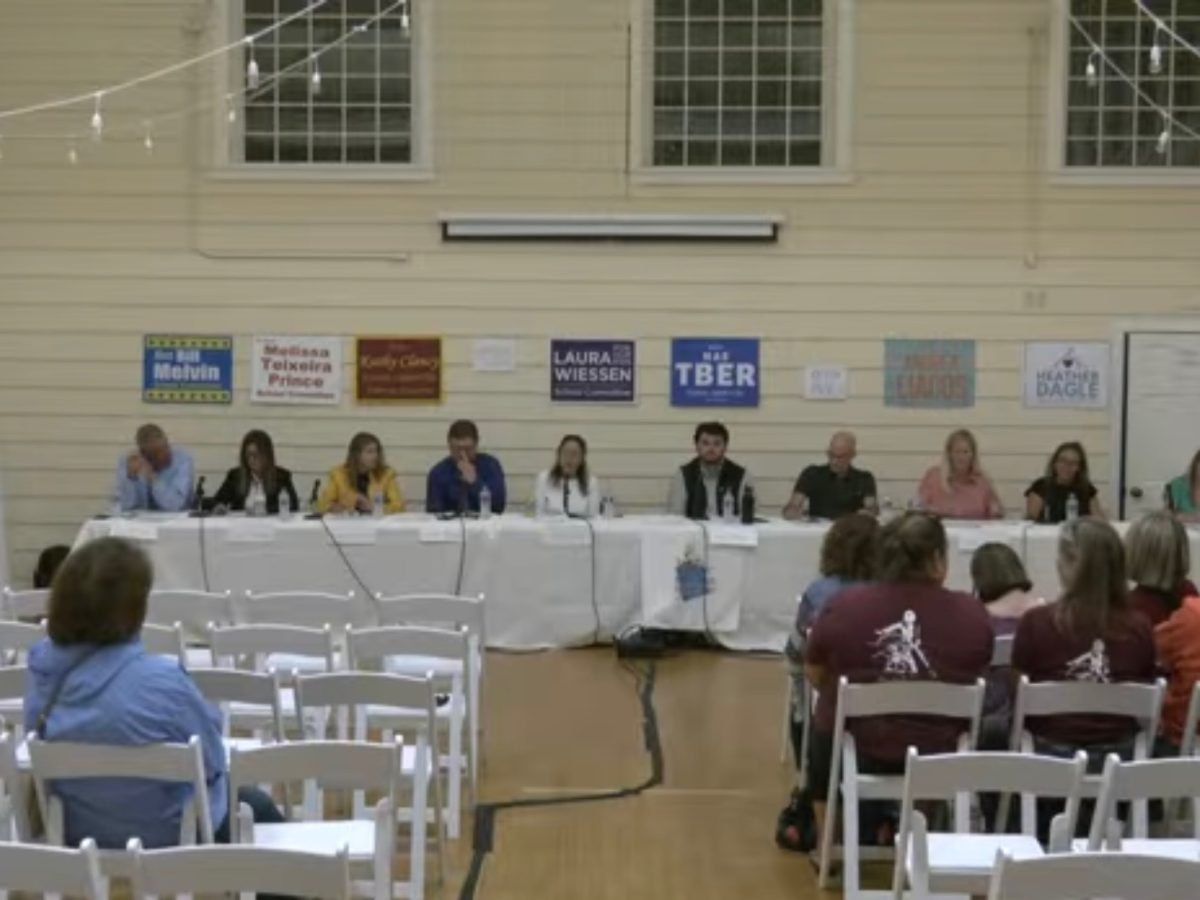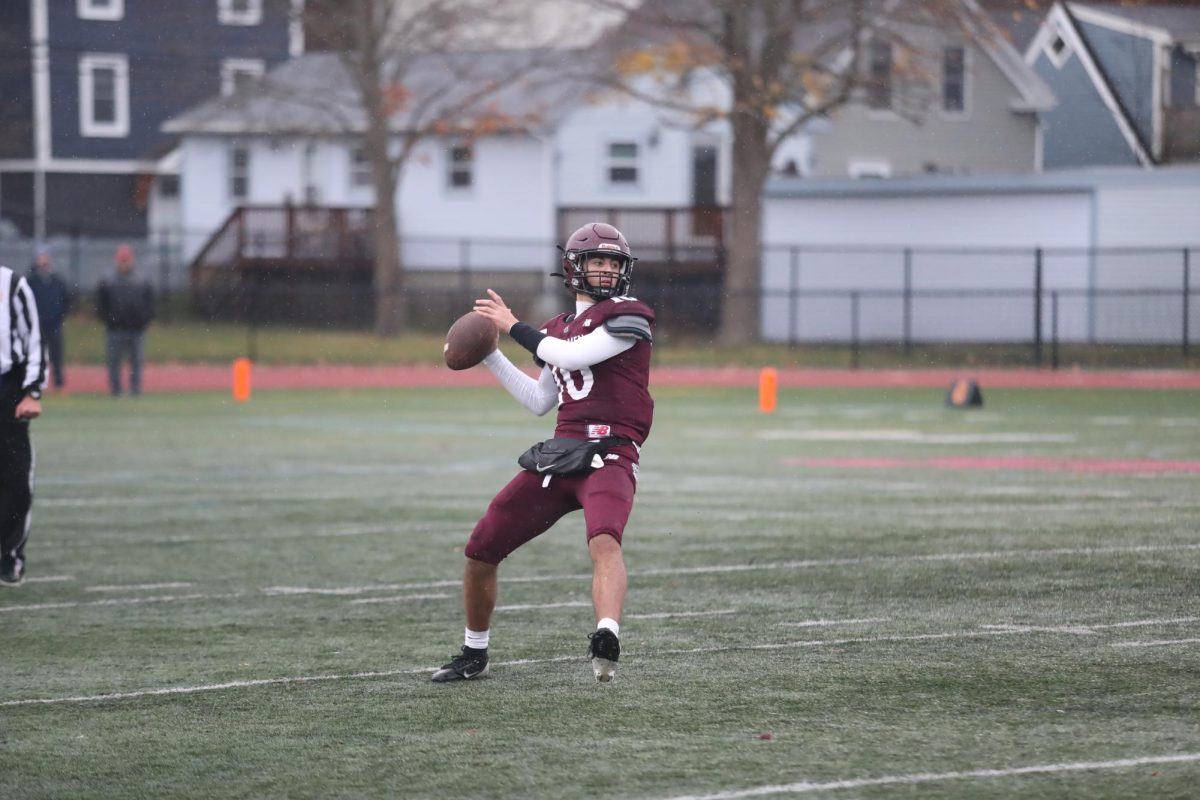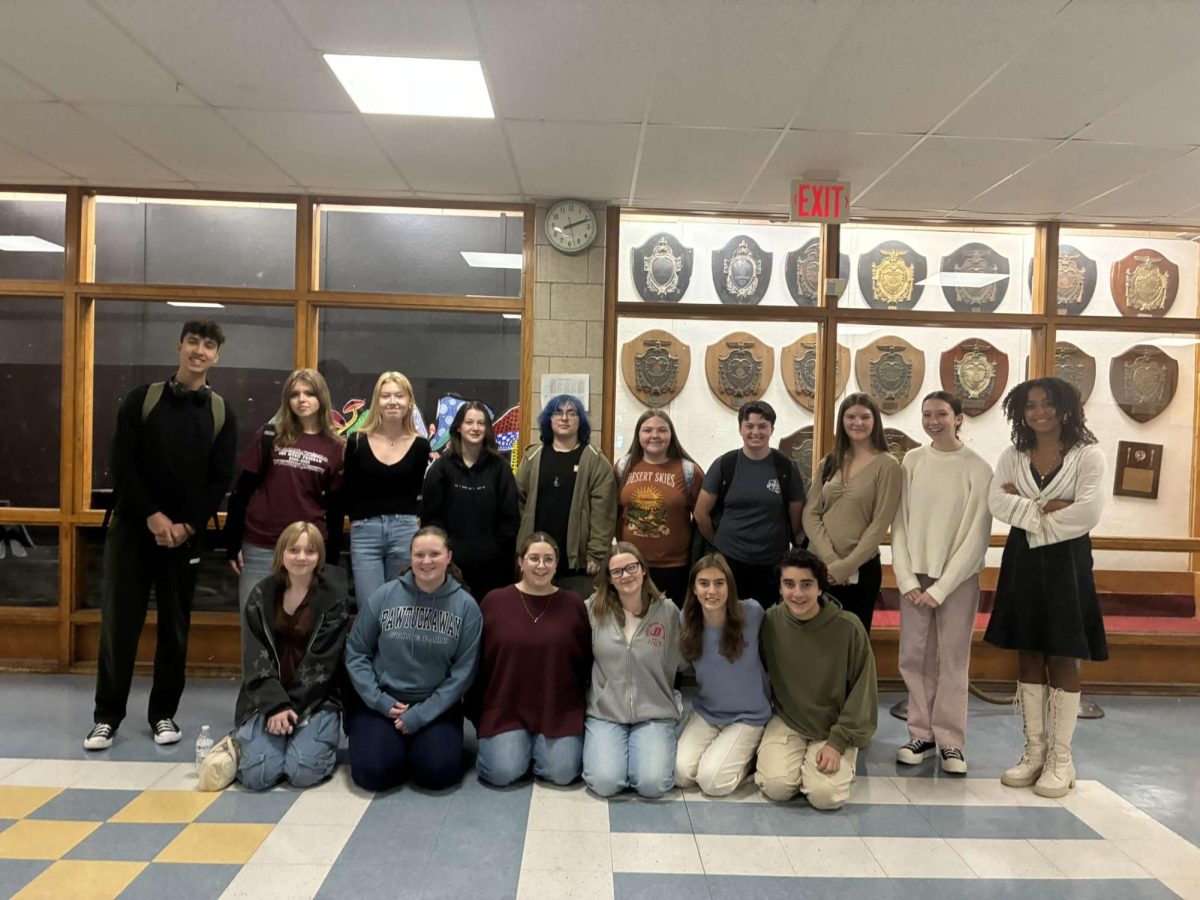Opinion: Was that really necessary?

September 25, 2015
As an AP English Language student, I understand the concept of summer reading. I read three books over the summer to prepare for the topics discussed with other students in my AP English Language class.
Did my AP books tie in with the very vague topics posed for the school-regulated summer reading assignment? Yes.
However, I do not think it was necessary to take time out of the middle of the day to discuss these topics.
GHS requires four years of English. This means everyone is in an English class (with the exception of those who got English credits through classes over the summer at North Shore Community College). So, why can’t we take time out of our English classes to discuss these topics with our English teachers?
The full 45-minute summer reading block took time out of my other classes, including another AP class. AP classes only have a certain amount of time to learn everything there is to know about a subject before the test in the Spring.
That being said, why do we need another English block, with teachers who don’t teach English? Why are the math teachers expected to facilitate an English discussion? Why are the AP teachers expected to take time out of their classes to discuss vague topics with their homerooms?
My homeroom is in the math department. My homeroom also consists of ten people. Throughout those long forty-five minutes, not one person said anything. What is the point of that?
I’m not going to do extra English work if I’m not going to be graded. I went to my homeroom because attendance was taken and I don’t want a cut. Personally, I don’t want a kindle fire.
I want to be prepared for my AP tests in the Spring. I want to do my Calculus homework and study for my Spanish test I have at the end of the day.
Summer reading is not a waste of time. Forty-five minutes of another English class, where no one gets anything done, is.










![The Volleyball team poses after their win. [Photo courtesy of GHS Volleyball]](https://thegillnetter.com/wp-content/uploads/2025/10/IMG_6936.jpg)


![The GHS/MERHS senior cross country runners pose together on Senior Night. [Photo courtesy of Manchester-Essex Athletics]](https://thegillnetter.com/wp-content/uploads/2025/10/Screenshot-2025-10-10-at-11.18.29-AM.png)

















Mrs. Papows • Oct 3, 2015 at 8:34 am
Katelyn,
Having taught at GHS for the past 32 years, I have been involved with the summer reading dilemma, for a long time. As a reading teacher, I was on numerous committees to come up with ideas that would please everyone.There is data that says a student’s reading level will decrease if they do not read during the summer. This is why we try so hard, at it. The discussions were only held in the English department, tests were made for specific books required and the English teachers were responsible for the grades. This did not sit well with these teachers because they felt that they were given extra work when the other departments were not involved, at all. So that is why it was changed to be school-wide. Teachers also volunteered to lead discussions. Yes, it can be tough trying to lead a discussion with students who have not read anything or are hesitant to speak up. All teachers deal with this, everyday in their classes, and should be able to handle this situation. The teachers knew this was coming and could have had an alternative way to get their homeroom involved. I agree with Mr. Cook when he says, “The purpose of summer reading discussions is to give teachers a chance to share that with you and to encourage you and your peers to become wide and deep readers too–across all disciplines.” There is a large population of GHS students who would never read anything if we did not encourage it. This is definitely an endeavor that is worth pursuing, for years to come. The summer reading event at GHS can also be looked at as a way to bring our school community together in a different way and to get all students involved in the school.
Thanks for this forum,
Mrs. Albina Papows
Child Study Teacher
Elective’s Dept. Leader
Emily • Sep 29, 2015 at 9:29 am
I personally think that summer reading is important. You said that for the entire 45 minutes no one spoke, but whose fault is that? Maybe the Kindle Fire was a motivator for those who don’t normally read. Either way, your homeroom being in the math department shouldn’t have an effect on the discussion, because being good at math doesn’t make you illiterate. I can also understand why you’re so worried about you AP classes, but your teachers can, and will, handle it. I would also like to point out that if you only care about a grade then why would you read any books over the summer? Reading, and taking the time to think about what you read shouldn’t be something you can get a grade on. How can you grade some ones thought process?
-Emily
Julia • Sep 27, 2015 at 9:06 am
Honestly, I think summer reading should be more of a thing if you need to cover books that one won’t have time to do over the year, such as in an AP class. Reading in general is a good thing and helps strengthen your learning skills, but the way summer reading is presented in schools seems to have the implication that people need to read over the summer or else their brain will shrivel up! It’s more of a busy-work activity if the school doesn’t want to think of children actually doing non-educational things over the summer (gasp!). Students retain things better than these people realize. I think the quality of the curriculum is key to education, not the quantity. Summers are a much needed rest for many to recharge for the next year. Also, who said learning only happens in a classroom? Or through a structured lesson plan? Life isn’t given to you in lesson plans…
Mr. James Cook • Sep 25, 2015 at 3:24 pm
Katelyn,
I’m glad you were able to make connections between the reading we did to prepare for AP English Language and some of the school-wide topics of discussion. Also, I think you’re right that we can do a better job promoting school-wide summer reading. None of the things we’ve tried over the last seventeen years has managed to accomplish everything we’d like summer reading to do. Unfortunately, the latest approach is no different. We’ll keep working on it.
The part of your editorial I’d like to push back on a bit is where you suggest that getting together to talk about reading amounts to an extra English class. At GHS and beyond, educators know that reading and thoughtful discussions are essential to learning in every major discipline. Sure I’m an English teacher, but a lot of what I read this summer (mostly articles but some books too) isn’t the sort of thing I teach in English. I read about economics, genetics, statistics, politics, ethics, food, music, films. I tried to read about the chemistry of paint. I even read a few things in Spanish.
I’m not alone. A lot of your teachers in a lot of subjects read widely and deeply. The purpose of summer reading discussions is to give teachers a chance to share that with you and to encourage you and your peers to become wide and deep readers too–across all disciplines. English teachers talk with students who read about technological innovation. Technology and engineering teachers talk with students who read about overcoming adversity in business. Business teachers talk with students who read about creativity in art. Art teachers talk with students who read about reducing stress through yoga. Etc. Well, that’s the goal anyway.
Clearly, we didn’t achieve our goal. We may even have undermined it a bit by giving you and some of your peers a negative experience. So it’s all the more important that I ask you and others to reconsider the notion that reading (and talking about reading) belongs in English classes only. GHS can be a place where all teachers and students see exploring the world through reading and talking about reading as a core part of who we are and what we do. Then, I bet we’ll enjoy the 45 minutes every September when we get the chance to talk to each other–about innovative drones and sad wizards, about statistical anomalies and starving animals, about historical tyrants and courageous activists, about business tycoons and attractive vampires, about brave soldiers and wise yogis–and to celebrate the importance of reading for all of us.
best wishes,
Mr. James Cook
English Teacher & Program Leader
Gloucester High school